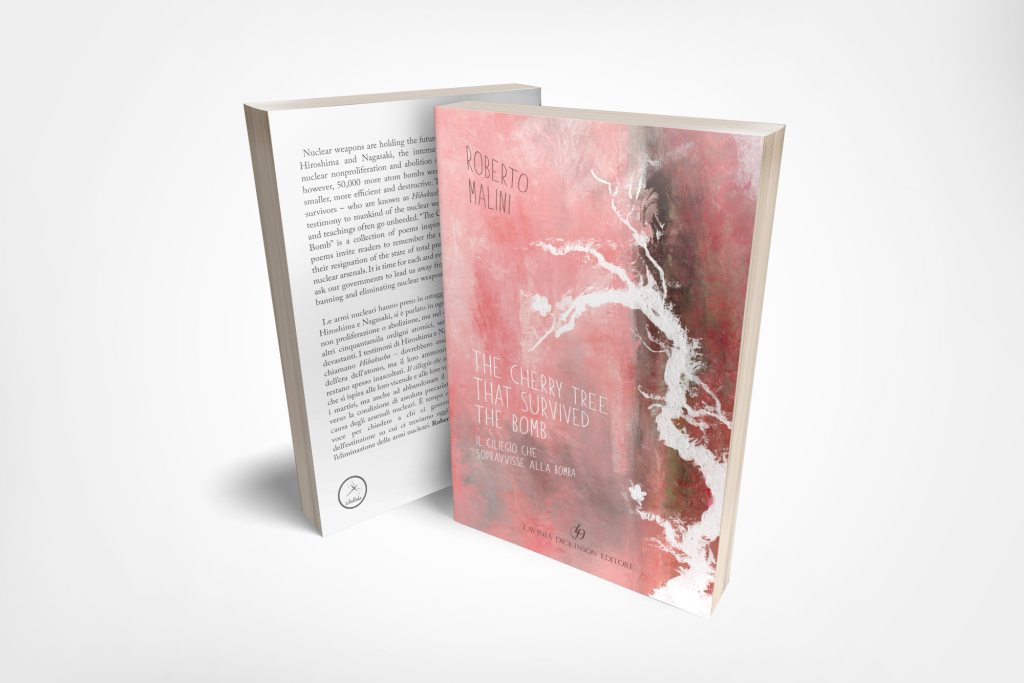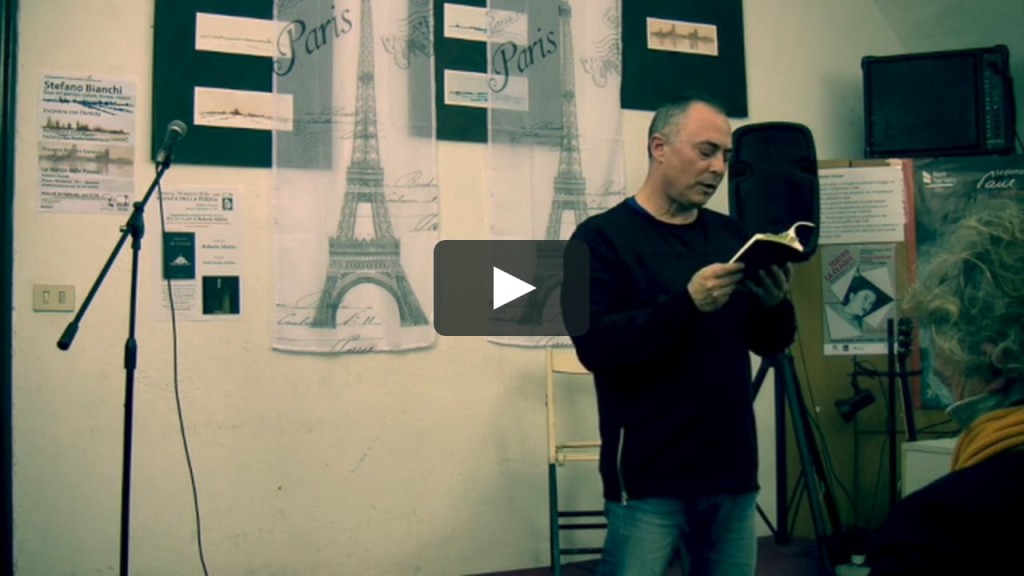ROBERTO MALINI
Nuclear weapons are holding the future of the world hostage. After Hiroshima and Nagasaki, the international institutions discussed nuclear nonproliferation and abolition strategies. At the same time, however, 50,000 more atom bombs were produced, bombs that got smaller, more efficient and destructive. The Hiroshima and Nagasaki survivors – who are known as Hibakusha in Japanese – should be a testimony to mankind of the nuclear weapon era, but their warnings and teachings often go unheeded. “The Cherry Tree that Survived the Bomb” is a collection of poems inspired by their experiences. The poems invite readers to remember the martyrs, but also to abandon their resignation of the state of total precariousness we live in due to nuclear arsenals. It is time for each and every one of us to speak out and ask our governments to lead us away from the brink of extinction by banning and eliminating nuclear weapons.
Three poems from The Cherry Tree that Survived the Bomb, bilingual edition Italian-English, Lavinia Dickinson Editore, 2017
Poems from the collection.
Two Madmen
On each side
of a flowerbed,
two madmen pick a fight.
The only problem is
we are the flowers.
*
Love
It was later, after the blue flash.
beams, tin cans, dried leaves and corpses,
a boy stood up.
His skin was in shreds,
like the clothes of an outcast,
his flesh burnt.
The pain he felt
kicked and flailed
violently in his limbs.
It felt as though it wanted
to push his soul
out through his eyes,
upwards, to the sky.
Then suddenly, he heard a moan
and he turned towards it.
Under a broken door
he saw a young woman
in the same condition.
He didn’t know her.
As she moaned
the girl lifted an arm
from which
pieces of burnt skin hung.
He dragged himself towards her,
freed her, helped her stand
and put an arm around her shoulders to
support her.
They walked together
not knowing where to go
and neither abandoned the other
right to the end.
*
He Slept Peacefully
On the morning of August 6th, 1945
Paul Warfield Tibbets Jr.,
the deliverer of death
dropped the atom bomb
on Hiroshima.
He was 30 years old
and the B-29 Bomber
that had carried the bomb
was named after
his mother:
Enola Gay.
The code name for the bomb,
was Little Boy.
Paul Warfield Tibbets Jr.
lived another 62 years
and throughout his life
he claimed he slept
peacefully.
*
The Innocent
The innocent
died side by side
in the dark
or in the light.
Small steps of fire
consumed themselves
around the willow trees
and like fruits their eyes
split open, revealing
their red sweetness.
Masters at forgetting
we forgave
too quickly
when the stones
were still thirsty.
Biographical Note
Roberto Malini was born in Milan in 1959. Poet, writer, artist and non-violent activist, he is the co-founder and leader of EveryOne Group, the international human rights organisation. He has published collections of poems, translations, works of fiction, essays and screenplays for both film and television. Several of his books have been translated into English, French, Spanish, Portuguese and other languages. A poet laureate, he has received numerous literary, artistic, cinematographic and civil recognitions both in Italy and abroad. A Holocaust scholar and educator to its memory, he collaborates with leading institutions and memorials. He has collected and donated to the Italian state an important collection of artworks by Jewish painters, sculptors and engravers who either perished in the concentration camps or survived the Nazi persecution. The works are now in the International Holocaust Museum in Rome. He has also donated a series of video interviews given by Holocaust survivors to the Yad Vashem Memorial in Jerusalem, and a collection of works of art, photographs and ancient and modern documents from the Roma and Sinti communities across Europe to the Museum of Romani Culture in Brno, Czech Republic. Because of his commitment and his writings in defence of discriminated minorities, Malini has suffered serious forms of police and judicial persecution, which was reported in the Annual Reports of the United Nations High Commission for Human Rights. He collaborates with the office of the United Nations High Commissioner for Refugees and Human Rights, UNICEF, the European Parliament, the Council of the European Union, the European Commission and other organisations that protect freedom and civil rights. He is a member or honorary member of important literary and artistic academies and associations.
In the picture: Roberto Malini receives from the Institutions of Sierra Leone the honor of Poet Laureate (on the same occasion the Italian artist Dario Piccciau received the title of Artist Laureate). The honors were granted for their literary and artistic work at the service of civilization, human rights and peace.




